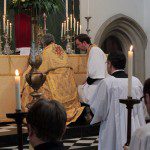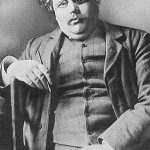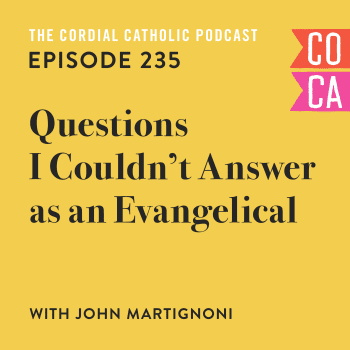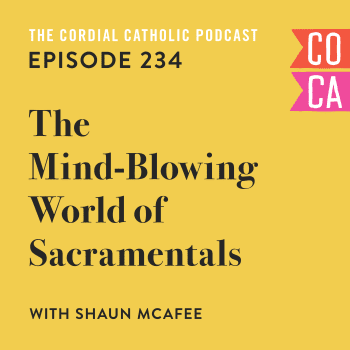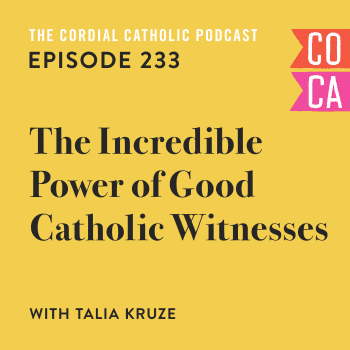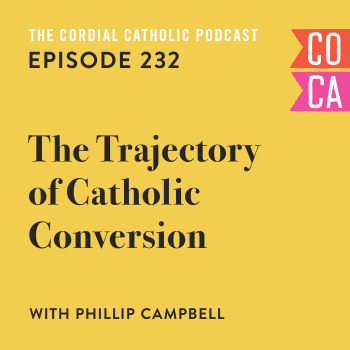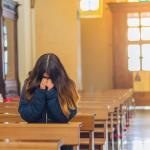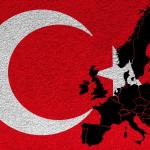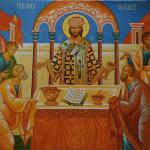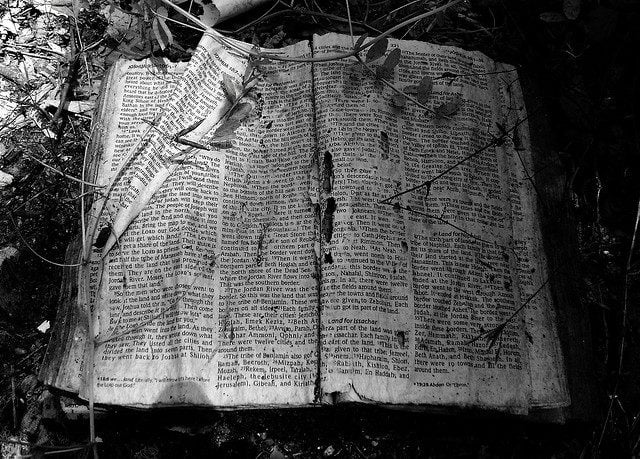
I was talking to a friend yesterday when I came to realize, from hearing someone else’s story, that not everyone’s misconceptions or notions about the Catholic Church fall so easily.
As someone making his way into the Church I still find myself astonished to hear some of the things that my fellow Protestants believe about Catholicism. I’m shocked, for example, when someone asks, “But don’t they worship Mary?” But I shouldn’t be. Just a couple of years ago I would’ve believed similar things about the Catholic Church. Still, it seems eons ago, and sometimes I forget how much I’ve read and learned and experienced and grown and how those misconceptions were dismantled or melted away.
The Catholic Church does a horrible job at explaining itself.
That is a fact.
There is a generation or more of Catholics who don’t know or understand their faith very well and a significant problem of evangelization within the Catholic Church. Many Catholics don’t know what they believe, or why, and can’t begin to know how to share it.
Coupled with the long-standing prejudices of many Protestants—who began an existence protesting against Catholicism—and you’re liable to get a pretty sticky soup: Catholics don’t know their faith very well, and Protestants don’t know it well either. It’s the perfect environment for the growth of misconceptions, and that’s exactly what’s grown.
Part of the primary purpose of this blog is to explain why I’m Catholic and what it means, so there’ll be plenty of room to explain some of the commonly misunderstood doctrine, dogma, and practices. I’m excited to dig in there. Here I want to talk about my faith journey and how, in general, misconceptions I held about Catholics began to be torn down.
First, I read.
I wrote last time about the tug of tradition that I was beginning to sense that in my life. Catholic religious tradition is more firmly rooted than that of the evangelical Protestant traditions I’ve been a part of. That tug and the other influences and factors in my life that I’ve written about before led me to begin to read more seriously about Catholics and the Catholic Church. This began a sort of a snowball effect.
Reading about Catholicism from Catholic authors, and not just from the perspective of Protestant writers, opened up a whole new world for me. A new world of biblical theology and a dynamic and rich tradition of writings and writers that I had very little idea of or exposure to before. As I began to read I began to understand the biblical and traditional basis for many of the misconceptions that I had held about Catholic practices. There are lots of good Catholic writers, thinkers, and theologians and, in fact, for the first 1,500 years of Christian scholarship they were all Catholic. It was exciting to discover that practices didn’t just spring up from something the Pope said but from hundreds (in some cases thousands) of years of the most serious scholarship.
The second thing that began to change my mind, that began to undo some of the misconceptions I had was being around Catholics.
I wrote earlier in my conversion story about the three Catholic friends that I had and how I struggled, early on in my journey, to find good solid Catholics to learn from. As my journey has unfolded, and especially as I began to become more involved in things happening within the Catholic Church, like the Rite of Christian Initiation for Adults classes, I’ve met scores of Catholics who’ve run contrary to the dusty stereotypes many Protestants might hold or superstitious people working out their salvation.
No, not all Catholics are pious and devout but neither are all Protestants and I’d venture the split is probably equal among both groups. How many are just “warming the pews” on both sides of the schism? But I’ve met devout and pious Catholics. And equally, most Catholics are understood, at least by Protestants, to be biblically illiterate. This is certainly, for the most part, accurate but not all Catholics are ignorant of their Bible and the growing momentum is behind a push to read and study more.
The third thing that has helped to unpack some of my misconceptions about the Catholic Church has been to begin to be Catholic.
As we pray in my R.C.I.A. group we cross ourselves as, “a sign of our faith,” and I cross myself, too. It’s a deeply rich, historically-rooted, reminder of who we’re praying to and why. As a Protestant we pray, “In Jesus’ name.” As a Catholic we pray, “In the name of the Father, and of the Son, and of the Holy Spirit.” The cross we make on ourselves is a solemn reminder each time we pray and doing it has helped me to understand and appreciate the practice more fully.
And I went to Mass. I learned a lot there, too.
As I read about Catholicism, as I meet more Catholics, and as I begin to be a Catholic I find that my lingering misconceptions fade. By reading about Catholicism, by meeting more Catholics, and by being more Catholic I’ve learned that there are honest, earnest people trying to be Christians in the Catholic Church, too. That was a huge misconception, collapsed.


